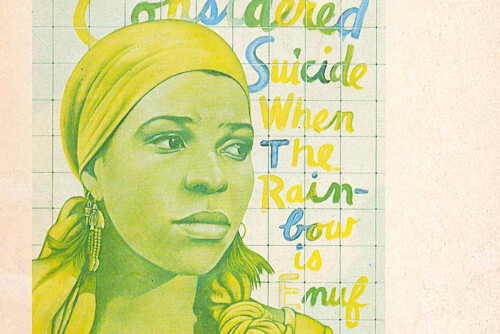Much-maligned, the genre of melodrama remains ever popular globally, achieving late in the Twentieth Century a televisual and affective lingua franca of sorts in the form of the Latin American telenovela. Despite culturally specific storylines and conventions (aficionados easily can distinguish between Mexican, Brazilian, and Colombian productions), the telenovela reaches international audiences throughout Africa, Eastern Europe and Asia. While some critics rightly point to the popularity of the telenovela to contradict inflated reports of the homogeneity of global media, the opposition homogeneous-heterogeneous also risks appealing to a discourse of diversity that may be too simplistic. In other words, the idea of diversity as a good-in-itself (and the index of a more democratic global media) elides more complex (and inherently transnational) histories of production and reception for the telenovela, especially in regard to the different marginalized identities that form a key congregation amongst its mass audience. The many Mexican adaptations of Fannie Hurst’s 1933 novel Imitation of Life provide a case in point, demonstrating how the racial melodrama resonates as a popular form throughout the Americas. Hurst’s family drama about a tragic mulatto—most (in)famously adapted in 1959 by Douglas Sirk into the classic Hollywood melodrama starring Lana Turner—inspired multiple Mexican adaptations for both cinema and television, most recently a telenovela from 1997. The supposed incongruencies between the racial imaginaries of Latin America and the United States are challenged by the obvious cache of Hurst’s and Sirk’s texts in Mexico. The hemispheric popularity of the tragic mulatto trope requires race scholars to rethink long-held generalizations about racial formation in the Americas. I wish to explore the capacity of melodrama to open up a space for marginalized identities, and I will examine how the melodramatic mode both consolidates and exacerbates the logics of racial domination.
In Playing the Race Card: Melodramas of Black and White from Uncle Tom to O.J. Simpson, Linda Williams persuasively argues the salience of a melodramatic mode particular to the Unites States. 1 Jesús Martín-Barbero, on the other hand, explores the various Latin American registers for melodrama, including Brazilian cordel literature, Mexican corridos, and Colombian vallenatos, but most significantly within the form of the telenovela. His analysis attempts to account for the complex identifications stirred by melodrama:
Melodrama is the reason that the moving force behind the plot is always the ignorance of an identity, be it the child’s ignorance of his parent’s identity, one sibling of another’s, or a mother of her child’s. It is present in the struggle against evil spells and outward appearances, against that which hides and disguises, a struggle to be recognized by others. Might this not be the secret connection between melodrama and the cultural history of the Latin American ‘sub’-continent? 2
In other words—if I may borrow a favorite motif from Douglas Sirk, the mirror—melodrama’s extravagant imitations (of everything and nothing in particular) hold up a mirror to the supple, contradictory realities of marginalized subjectivities. According to Martín-Barbero, the family relationships privileged in melodrama function as a metaphor for a “primordial sociality”: “this sociality lives on culturally, and from its locus, the people, by ‘melo-dramatizing’ everything, take their own form of revenge on the abstraction imposed by cultural dispossession and the commercialization of life” (277). If, as Martín-Barbero contends, the “thick, censored plot of the tightly woven fabric of family relationships” serves as the metaphor for melodrama’s primordiality, I would add that the family drama of the tragic mulatto represents a foundational trope enabling melodrama’s integrations of national and hemispheric imaginations.
Fannie Hurst’s 1933 novel, Imitation of Life, long out of print and overshadowed by its lavish Hollywood adaptations, was only recently reissued from Duke University Press, with an introduction by Daniel Itzkovitz. In his helpful and comprehensive introduction, Itzkovitz discusses the adaptations of the novel, first by John Stahl (1934) and then by the master of cinematic melodrama, Douglas Sirk (1959). Reviewing the particularities of Sirk’s film, including its casting history, Itzkovitz inserts a parenthetical aside in order to identify Susan Kohner as the “Jewish actress” playing the tragic mulatto Sarah Jane. 3 I do not bring this up to fault the author for his omission of Kohner’s Mexican heritage (in fact, I am guilty elsewhere of the inverse omission). Instead, I wish to highlight melodrama’s ability to mediate a range of identities, especially its capacity for opening a space for marginalized subjectivities to play on a national or even world stage (or screen). The space that Itzkovitz’s sentence grammatically models functions as an appositive non-closure, a parenthetical fill-in-the-blank: Jewish, Mexican, mulatto, or even queer. In an interview with Cynthia Fuchs, Susan Kohner’s sons, the screenwriting and directorial team of Chris and Paul Weitz, joke that the only people who know their mother’s work are “gay men and cinephiles.” Chris Weitz quips, “It is the gay litmus test” (20). 4
- See Linda Williams, Playing the Race Card: Melodramas of Black and White from Uncle Tom to O.J. Simpson. Princeton: Princeton University Press, 2002.[↑]
- Jesús Martín-Barbero (trans. Marina Elias), “Memory and form in the Latin American soap opera,” in To be Continued…: Soap Operas Around the World, Robert C. Allen, ed. New York: Routledge, 1995: 276-284, 276-277.[↑]
- See Daniel Itzkovitz’s introduction in Fannie Hurst, Imitation of Life. Durham: Duke University Press, 2004, xxxvi.[↑]
- Cynthia Fuchs, “Interview with Chris and Paul Weitz, director of The Cat’s Meow,” in PopMatters. Not coincidentally, I think, Itzkovitz is also the editor—with Ann Pellegrini and Daniel Boyarin—of Queer Theory and the Jewish Question. New York: Columbia University Press, 2003.[↑]



